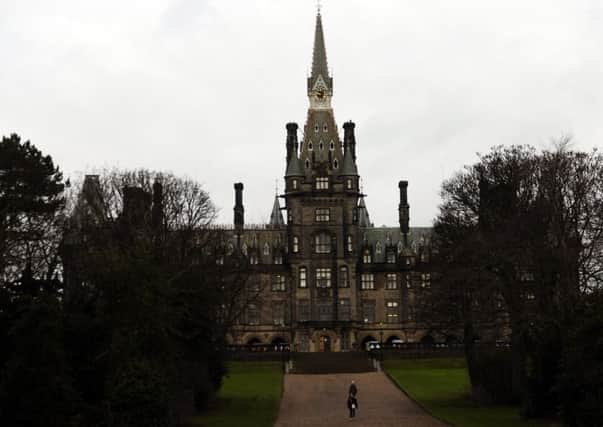Calls to scrap charitable status of private schools


Charity chiefs are now to be hauled in front of Holyrood to explain why the schools, some of which charge up to £30,000 a year in fees, enjoy the status which allows them lucrative tax breaks.
But the schools themselves insist that they face the “toughest test of public benefit and charitable status” anywhere in the UK.
Advertisement
Hide AdAdvertisement
Hide AdParliament’s petitions committee today heard calls for an overhaul to the current set-up from Ashley Husband Powton, a postgraduate student at University of of Highlands and Islands.
“It’s very difficult to understand how private schools can come to be classified as charities,” she said.
The three key tests to qualify as a charity in Scotland is that public benefit must be provided, that any benefit must not be outweighed by dis-benefit and that access must be not be “unduly restrictive”, MSPs were told.
“On all three of these accounts, private schools would appear to fail,” she added.
Only about 4% of pupils in Scotland attend private schools.
“Charitable status and private subsidy for private schools is inappropriate and unjust.
“To have charitable status means that all taxpayers including the poorest among them are subsidising the rich and privileged to privately educate their children.”
The post grad student told MSPs she wants to see private schooling scrapped altogether in Scotland and ending charitable status would be the first step.
In 2011, Fettes College in Edinburgh saw its tax liability fall from £209,139
Advertisement
Hide AdAdvertisement
Hide Adto £41,828, a taxpayer funded subsidy of £167, 311. George Watson’s, another fee-paying capital school, fell from £412,649 to £83,530, an effective subsidy of £329, 119.
Wester Hailes state school, where over 40% of pupils are are eligible for free school- meals, paid its tax liability of £261,873 in full. But it was suggested that a solution could be to hand state schools similar charitable to status which would see them enjoy similar tax breaks.
John Edward, director of the Scottish Council of Independent Schools yesterday said state schools were the “exception to the rule in relation to educational establishments.”
The independent school sector has “undergone very rigorous scrutiny” since the Office of the Scottish Charity Regulator (OSCR) started work, Mr Edward said.
Since the introduction of the charity test eight years ago, 43 of the 100 or so charities reviewed have been private schools, he added.
“As a priority group, the entire mainstream independent school sector has now been reviewed, along with one grant-aided school, “ he said.
“This has been an in-depth, complex and exhaustive process; describing a considerable learning curve for both sides, and the detailed decisions bear close reading.
“No group in Scotland is better able to demonstrate their compliance with the requirements to meet charitable purpose.”
Private schools are not allowed to make any profit. Any surplus income they get from fees must be ploughed back into things like teaching staff and infrastructure.